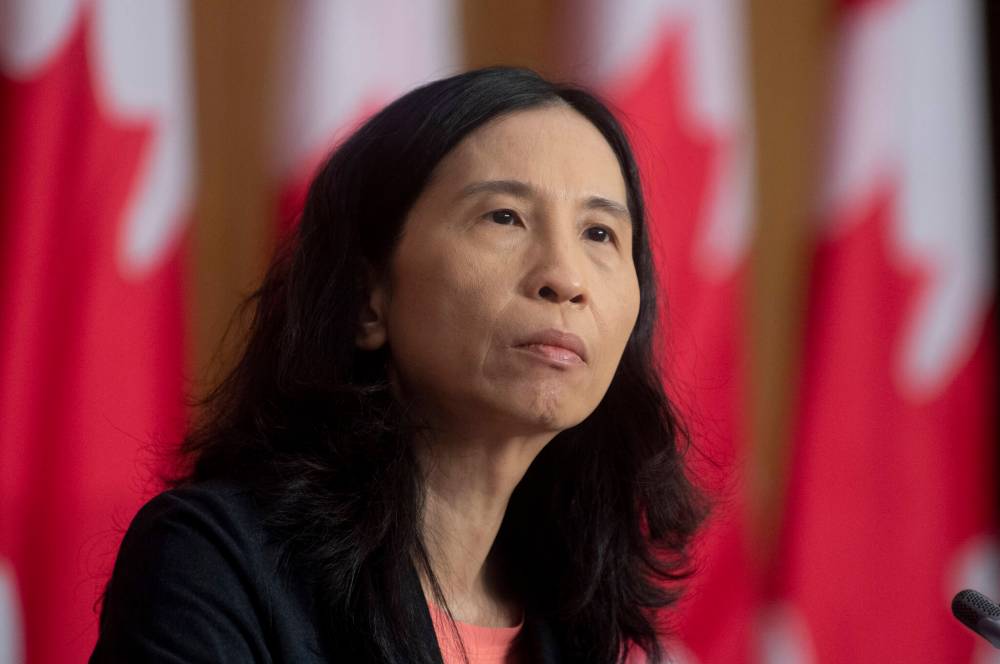Provinces pressed to push booster doses
Advertisement
Read this article for free:
or
Already have an account? Log in here »
To continue reading, please subscribe:
Monthly Digital Subscription
$0 for the first 4 weeks*
- Enjoy unlimited reading on winnipegfreepress.com
- Read the E-Edition, our digital replica newspaper
- Access News Break, our award-winning app
- Play interactive puzzles
*No charge for 4 weeks then price increases to the regular rate of $19.00 plus GST every four weeks. Offer available to new and qualified returning subscribers only. Cancel any time.
Monthly Digital Subscription
$4.75/week*
- Enjoy unlimited reading on winnipegfreepress.com
- Read the E-Edition, our digital replica newspaper
- Access News Break, our award-winning app
- Play interactive puzzles
*Billed as $19 plus GST every four weeks. Cancel any time.
To continue reading, please subscribe:
Add Free Press access to your Brandon Sun subscription for only an additional
$1 for the first 4 weeks*
*Your next subscription payment will increase by $1.00 and you will be charged $16.99 plus GST for four weeks. After four weeks, your payment will increase to $23.99 plus GST every four weeks.
Read unlimited articles for free today:
or
Already have an account? Log in here »
Hey there, time traveller!
This article was published 25/04/2022 (1324 days ago), so information in it may no longer be current.
OTTAWA — As provinces dismantle vaccination super sites and leave it to pharmacies to dole out COVID-19 shots, Canada’s top doctor says governments should instead revive a full-court press to get boosters into arms.
“We would love to get people mobilized once again, like they did the first round and the second round, to get that booster dose,” Dr. Theresa Tam said Friday.
“We’re trying to do that once again, and give it another shot, as it were.”

Less than half the Canadian population has had a third dose, which experts say is needed to get optimal protection against the Omicron variant, which quickly took over the COVID-19 spread in Canada during Christmas season.
“Because of Omicron, which is an immune-evasive variant, that third dose is really important,” Tam told reporters.
“It can give you a boost in reduction against infection, at least for a period of time, and transmission to others. But it can also strengthen the immunity against severe outcomes.”
However, Canada might be headed toward a growing rift between those who get every shot they can and those who stop with just two doses.
“We are seeing the fourth-dose rates going up faster perhaps than our third dose,” Tam said.
The Public Health Agency of Canada does not publish data on how many Canadians have had a fourth shot, while the Manitoba government has deleted its online vaccine tracker.
According to data the province sends to Ottawa, just 50.5 per cent of Manitobans ages 12 and up had their third shot, as of April 10, lower than the national average of 54.2 per cent.
Saskatchewan is also behind at 48.9 per cent for that age group, while Alberta trails at just 42.9 per cent boosted.
Tam said she’s concerned about the three Prairie provinces, all of which have the lowest uptick of boosters and of second doses, and make up three of the four worst provinces for COVID-19 hospitalizations.
“(With) ICUs and hospitalization rates still being high in certain provinces, and (they) don’t seem to be coming down very fast — please do go and get that booster, because it’s very, very effective.”
Winnipeg emergency room doctors are reporting historically long wait times, and Tam said she’s expecting a further increase in COVID-19 hospitalizations, even if those patients tend to have less severe cases.
This past week, Doctors Manitoba said the number of physicians in Manitoba isolating due to COVID-19 hit 55, double the number from a week prior.
“In some jurisdictions, they’re managing but really stressed,” Tam said.
“The current resurgence in health-care workers’ absenteeism… can impact the health system capacity at the moment. Which is why everyone needs to continue to do all we can to reduce transmission, in order to protect the health system.”
Tam said provinces can protect their health-care systems by ramping up booster-shot campaigns. That means making sure vaccines are available in convenient locations and people understand the importance of getting a third shot.
“We probably haven’t done enough good communication from all angles, from public health and otherwise,” she said.
Tam said governments can empower trusted community organizations to figure out why people aren’t getting their third dose, and whether they need public awareness messaging to explain the appropriate interval for getting a third or fourth shot.
The Manitoba government did not explain what work it’s currently doing to drum up interest in third doses and which projects have been shelved.
Instead, a spokesperson explained who qualifies for third doses.
The province also noted high uptake in older populations, with 72.1 per cent of those over 50 having a booster, 78.8 per cent of those 60 and up, and 83.1 per cent among those at least 70 years old.
Tam said she’d like to see similar rates among younger Canadians.
“We do need to, I think, get another boost of energy for Canadians to get that booster.”
dylan.robertson@freepress.mb.ca


